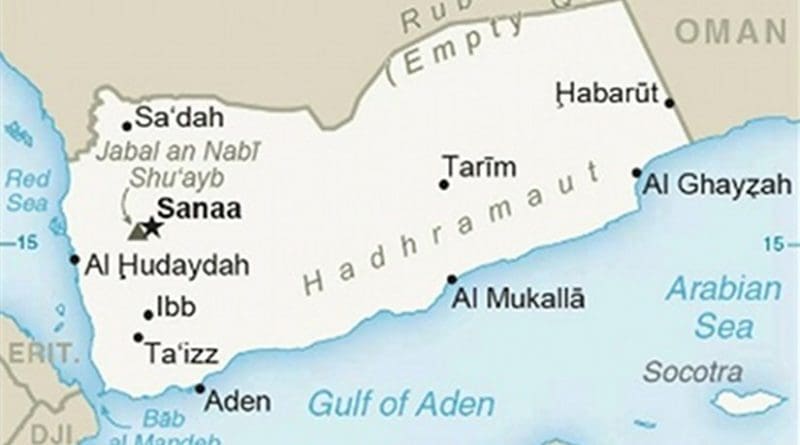Yemen’s Saleh Must Honor Riyadh Deal – OpEd
By Arab News
Wednesday’s deal between Yemen’s President Ali Abdullah Saleh and the Yemeni opposition in which he agrees to hand over power within 30 days to Vice President Abd-Rabbu Mansur Hadi in return for immunity for him and his family has been called historic.
It is certainly Saleh’s last chance to extricate himself from the 10-month crisis that has resulted in hundreds of people killed and brought the country to the brink of dissolution. If he does not go, many more Yemenis will die, the country will probably break apart and the chances are he will end up the same way as Libya’s dictator, Muammar Qaddafi.
Saudi Arabia and the other GCC states have worked hard to achieve this deal. The onus now is on Saleh to stick what he signed in Riyadh. He has to keep his promise and go. If he does, and elections are held within months as set out in the deal, and a new government is successfully formed as a result, then people will be able to say, with hands on their heart, that history was made on Wednesday.
But this is the same deal that was brokered by the GCC back in April and which Saleh promised and then refused to sign three times. He could renege again. The fact that yesterday, five protesters in Sana’a were shot dead by troops loyal to him is not encouraging.
Assuming, however, that he does go, then what? Getting him out of the way is only a beginning. It is just the first step in reuniting and healing what has become a deeply fractured country.
Handing over power to the vice president and then organizing elections certainly ensures continuity. That is needed if there is to be stability and Yemen is to survive in one piece. But will it work on the ground?
There is a mountain to climb in Yemen. The opposition is bitterly divided. There are those in the south who want an independent South Yemen again. There are others who want an independent state in Hadramut. There are deep tribal rivalries. And there is Al-Qaeda.
Yemen could easily end up like Somalia — a failed, fractured state. Nor will the crisis be over if Saleh departs the scene but the regime he and his cohorts built up over the past 33 years remains in power. As in Egypt, it will be unfinished business. The young Yemenis who have led this uprising want genuine change.
On the plus side, Yemenis, even if they have little love for the central government in Sana’a, have a strong sense of national identity. They are proud to call themselves Yemenis. But belief in Yemen is not enough. Somalis too have a strong sense of their own identity. It has not saved them.
There are those who imagine that a divided Yemen is a weak Yemen and therefore not a threat to anyone else in the Arabian Peninsula. They are wrong. A divided Yemen is a dangerous Yemen — dangerous to itself and to its neighbors. Two years ago, we saw how internal fighting there spilled over the border resulted in Saudi blood being shed before the Yemen rebels were defeated and pushed back.
No one in Saudi Arabia or the other GCC states is foolish enough to say that the Riyadh deal solves Yemen’s problems. But it provides the only realistic start to solving them. The goal for the whole region has to be the transformation of Yemen from being one of the poorest countries in the world into a prosperous state. That is the key to ensuring its peace and unity. As part of Wednesday’s agreement, there is a promise that a united Yemen will receive substantial aid from Saudi Arabia and other GCC states. That promise must be kept.
It is only with the help of its neighbors that Yemen is going to be brought back from the brink. It will take a lot more hard work and commitment, notably financial commitment, from the GCC, to make that happen. From Saudi Arabia and from the other GCC partners, that commitment is there. Everything now depends on the Yemenis themselves.

